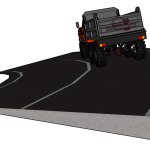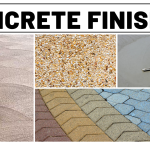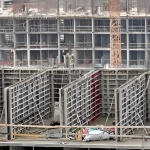
The Difference between an In-Ground and an Above-Ground Swimming Pool
Swimming pools are a fantastic addition to any backyard, providing a place to cool off on hot summer days and creating a space for relaxation and entertainment. When it comes to choosing a swimming pool for your property, you’ll typically have two primary options: in-ground and above-ground pools. Both types have their advantages and disadvantages, so let’s explore the key differences to help you make an informed decision.
What is an In-Ground Pool?
An in-ground pool is a type of swimming pool that is constructed by excavating a hole in the ground and then installing the pool within this space. In-ground pools are typically considered permanent fixtures on a property and are known for their durability and aesthetic appeal. They come in various shapes and sizes and can be customized to fit the specific needs and preferences of the homeowner.
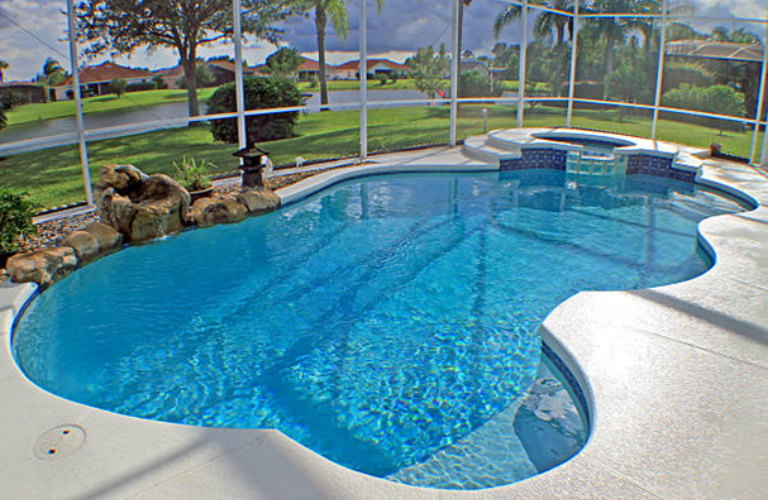
What is an Above-Ground Pool?
An above-ground pool is a type of swimming pool that is constructed above the ground surface, rather than being excavated into the ground like an in-ground pool. These pools are typically pre-fabricated and come in various sizes and shapes. Above-ground pools are popular for their affordability, relatively easy installation, and the fact that they are not considered permanent fixtures, making them a more flexible option for homeowners.
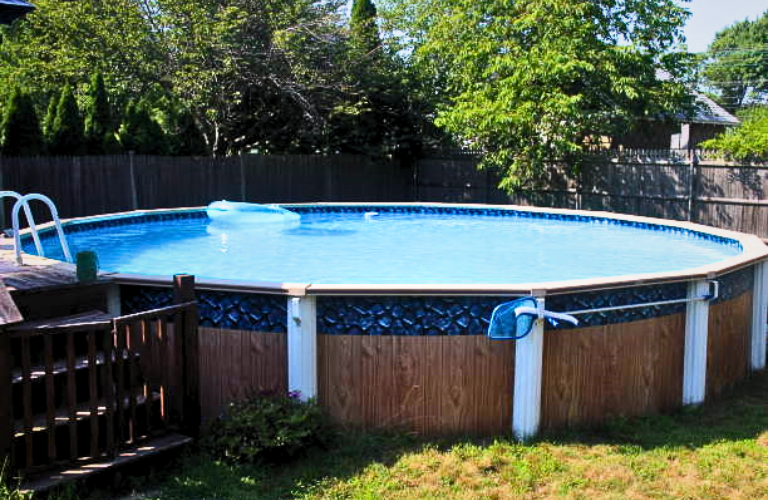
Difference between an In-Ground and an Above-Ground Swimming Pool
In-ground and above-ground swimming pools are two common types of swimming pools that differ in several ways, including their installation, cost, aesthetics, and maintenance requirements. Here are the main differences between in-ground and above-ground swimming pools:
1. Pool Design
In-Ground Pool
An in-ground pool has more shape, size, and feature possibilities than an above-ground pool. In-ground pools can be long lap pools, rectangular or round pools for relaxing and playing with friends, or a combination of both.
An in-ground pool has more shape, size, and feature possibilities than an above-ground pool. In-ground pools can be long lap pools, rectangular or round pools for relaxing and playing with friends, or a combination of both. The number of possible shapes is virtually infinite. Pools in the ground can be practically any design, size, or depth that the owner chooses. In-ground pools are most commonly rectangular, although they can also be oval, kidney-shaped, or lagoon-style.
Above-Ground Pool
Above-ground pools have much fewer design, feature, and depth possibilities than in-ground pools. The most common shapes are round or rectangular, with a uniform depth of just over four feet.
2. Installation
In-Ground Pool
In-ground pools are constructed by excavating a hole in the ground and then building the pool within this space. This process involves significant excavation, structural work, and often the installation of plumbing and electrical systems. In-ground pools are permanent fixtures and typically require professional installation.
Above-Ground Pool
Above-ground pools are pre-fabricated and installed above the ground surface. They are easier and quicker to install and do not involve excavation or extensive construction work. Some homeowners can install above-ground pools themselves, but professional installation is also available.
3. Cost
In-Ground Pool
In-ground pools tend to be considerably more expensive than above-ground pools due to the excavation, construction, and customization involved. Costs can vary widely based on the size, shape, and features of the pool.
Above-Ground Pool
Above-ground pools are generally more affordable, making them a popular choice for homeowners on a budget. The cost varies depending on the size and quality of the pool.
4. Durability
In-Ground Pool
Pool durability varies tremendously based on its nature. Because there are no exposed walls, in-ground built-in pools are less likely to be destroyed by the elements or accidents; nevertheless, if this occurs, repairs are more expensive—in some situations, more expensive than the overall cost of an above-ground pool.
Above-Ground Pool
An above-ground pool is easier to demolish and replace. Because its edges are exposed, an above-ground pool is less robust and more subject to damage from accidents or storms.
5. Maintenance
In-Ground Pool
In-ground pools may require more maintenance, including regular cleaning, chemical balancing, and equipment maintenance. They are often equipped with more advanced filtration and cleaning systems.
Above-Ground Pool
Above-ground pools are generally easier to maintain due to their smaller size and simpler filtration and cleaning systems. They still require regular upkeep and chemical treatment
6. Life Span
In-Ground Pool
In-ground pools are designed to be permanent structures and can last for several decades with proper maintenance and care.
Above-Ground Pool
Above-ground pools have a shorter lifespan, typically lasting 10 to 20 years, although this can vary based on the pool’s quality and maintenance.
7. Home Resale Value
In-Ground Pool
In-ground pools can add value to a property, but the return on investment may not be as high as the initial installation cost.
Above-Ground Pool
Above-ground pools are less likely to significantly increase property value and may not appeal to all potential buyers.
8. Requirement for Heater
In-Ground Pool
In-ground swimming pools constantly lose heat to the surrounding ground, which is why heaters are required.
Above-Ground Pool
Above-ground pools, in most circumstances, do not need a heater because they are heated by the sun during the day and surrounded by ambient air temperatures at night. They are also well-insulated due to their thick walls.
9. Walkway Space
In-Ground Pool
In-ground pools require the installation of standard walkways around the pool.
Above-Ground Pool
Above-ground pools are not limited by the amount of space available for poolside walks.
10. Aesthetics
In-Ground Pool
In-ground pools are often considered more aesthetically pleasing. They can be customized in terms of shape, materials, and landscaping, and are integrated into the landscape.
Above-Ground Pool
Above-ground pools are less aesthetically appealing since they sit above the ground and have a more utilitarian appearance. However, they can be improved with the addition of decking and landscaping.
11. Added Features
In-Ground Pool
In-ground pools have an almost limitless number of options. The pool may have a connected spa or a shallow pool for kids, in addition to a diving board and slide. Other choices include waterfalls, grottos, swim-up bars, fire features, tanning ledges, and a sloped entry.
Above-Ground Pool
An above-ground pool has fewer options for additional features. Lighting, heating, and a little slide, for example, are all options. Due to its limited depth, it cannot have a diving board.
Also Read:
- Box Culvert Reinforcement Layout
- Concrete Joints Used in Construction
- Method and Period of formwork Removal
- Plastering: Purpose and Types of Plaster Finishes
- Demolition Techniques
Advantages and Disadvantages of an In-Ground Pool
Advantages
- A longer lifespan could increase the value of your home.
- They perform well with landscaping.
- Endless design options (concrete pools)
- Attractive for multiple purposes (play, relaxation, and exercise).
- Longevity (50–100 years or more)
Disadvantages
- There is a greater need for energy consumption and maintenance.
- Certain components, particularly those required for repairs, are more difficult to locate.
- Expensive to install.
- Long-term costs: upgrades and repairs will be required over time.
- It takes longer to heat up but holds heat longer than in-ground pools.
Advantages and Disadvantages of Above-Ground Pools
Advantages
- Cost-effective.
- Compact and simple to remove.
- It is simple to set up.
- Can be relocated if necessary.
- Lower maintenance and energy usage.
- It is substantially less expensive than in-ground pools.
Disadvantages
- Less appealing than in-ground pools
- There is little effect on house value.
- Resistance to winter weather is poorer than that of in-ground pools.
- Reduced lifespan (10–15 years).
- Limited customizability (size, shape, décor)
- Water fluctuations in temperature are more pronounced as a function of weather conditions.


